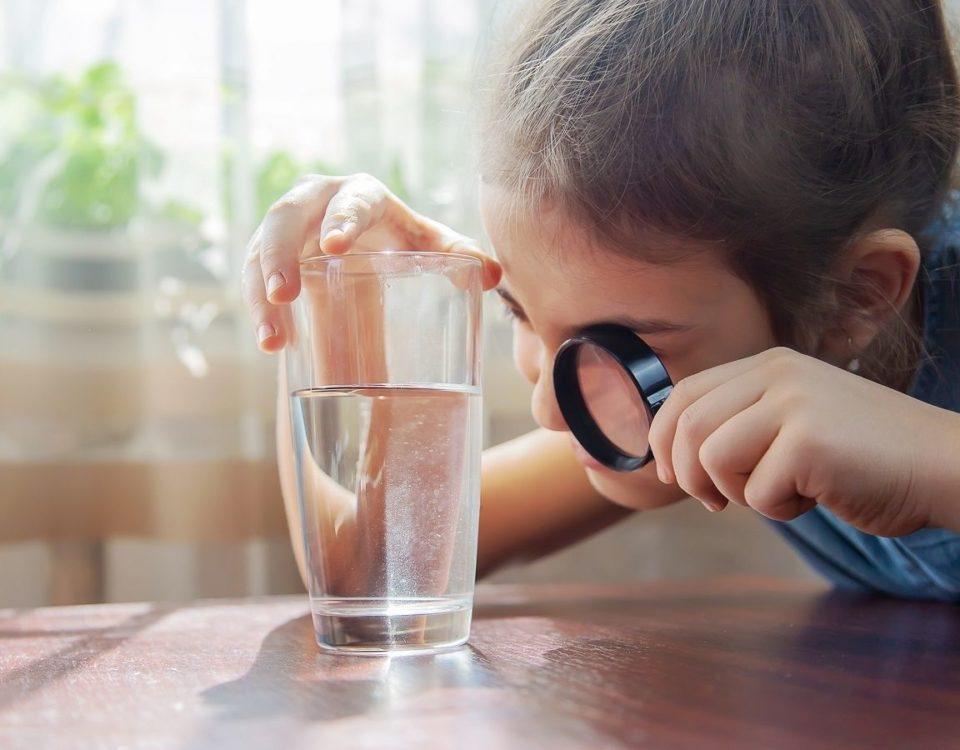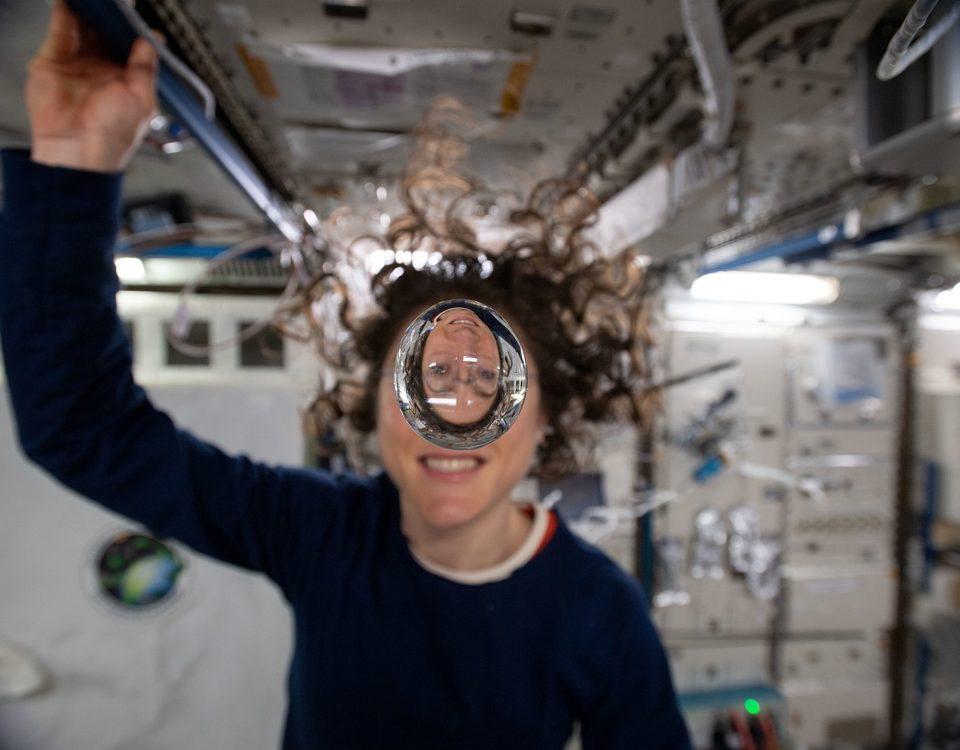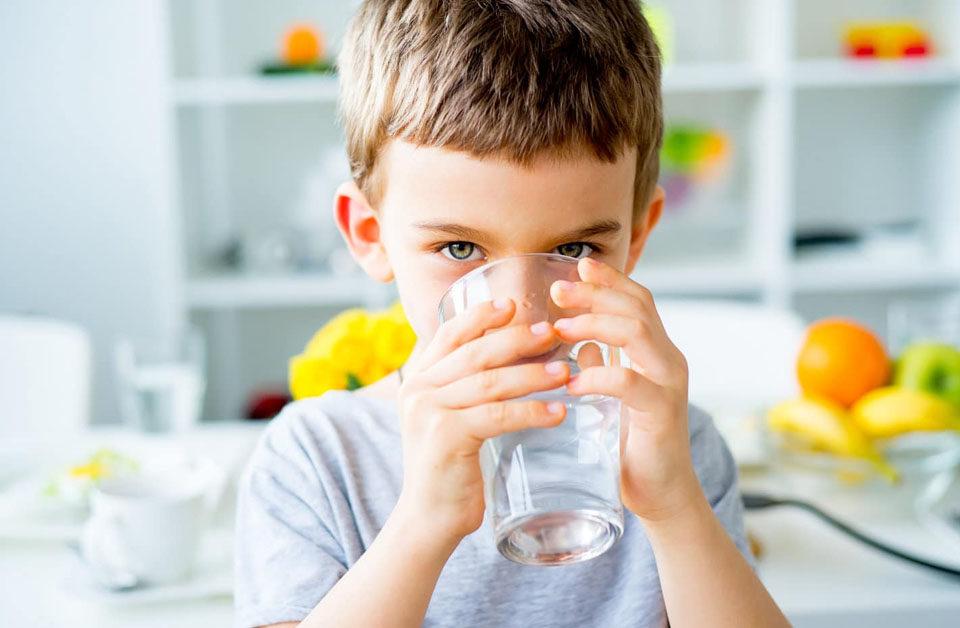Plastic in our drinking water
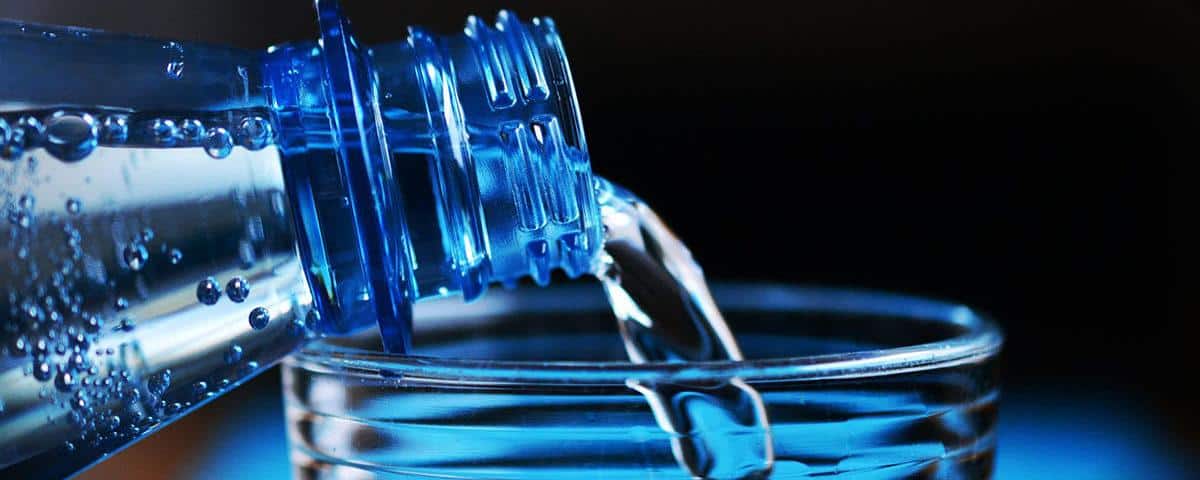
According to a 2018 UN report, studies have found plastic particles in 90% of bottled water and 83% of tap water1. But is this plastic health threatening?
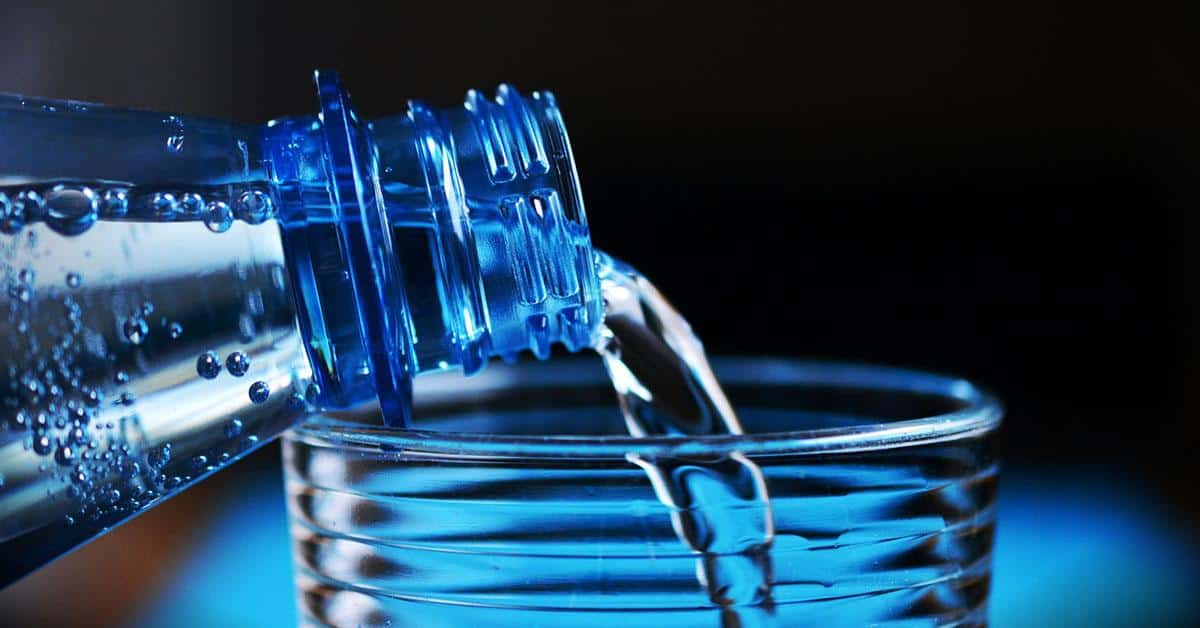
Although the majority of plastic particles we consume can pass through the intestine and can be expelled with no problem, some microplastics (from 0.1 micrometres to 5 millimetres) and nano-plastics (from 1 to 100 nanometres) could find their way into the lymphatic system of the intestine, the kidneys or the liver...
The journal Environmental Science and Pollution Research, published the results of a survey carried out on a sample of 20 mineral water packages in Germany. All of them contained endocrine disruptors that were released by the plastic.2
These disruptors damage the hormonal system and have negative effects on a.o. growth, mood, sleep, blood circulation and fertility.
Antimony trioxide is a toxic catalyst that is being used for the production of polyethylene terephthalate (PET) packaging. This compound is known to be a potential human carcinogen and can also migrate into the contents.2
Single use recommended or germs guaranteed
To limit our consumption of plastic, we sometimes reuse a bottle several times. When there are clear signs of wear and tear, we throw them away. This is a huge mistake: the necks of plastic bottles harbour phenomenal quantities of bacteria. This can be even over 100 times the amount on a pet toy. Besides, 98% of these bacteria are pathogenic germs.
As a result, plastic bottles are thrown away after their first and only use. It’s best to use a straw when you drink from a plastic water bottle. Another solution is to use glass or a stainless steel bottle.3
What are the solutions?
To avoid over-consuming water that contains invisible and unknown particles that are potentially harmful to your body and the environment, you can, for example, swap your plastic bottles for glass drinking bottles.
However, the most obvious solution is to avoid drinking bottled water. For a start, you will save money. 1 litre of bottled water costs €0.50, whereas 1 litre of tap water only costs €0.005! You will also avoid the effort of transporting bottles and reduce generated waste.
Don't panic if you don't like the water at home! O25 offers a purificationreverse osmosis water purification solution, which makes water light and tasteless. But there are several other solutions for filtering your tap water. Feel free to compare them to find the one that suits you best.
______________
1 https://www.lalibre.be/planete/2018/06/05/le-chiffre-fou-de-la-consommation-de-plastique-HSFZTKD6TRHEFF72MQLS54QZSY/
2 https://sante.lefigaro.fr/actualite/2009/04/21/9507-faut-il-bannir-bouteilles-deau-plastique
3 https://www.treadmillreviews.net/water-bottle-germs-revealed-2019/

